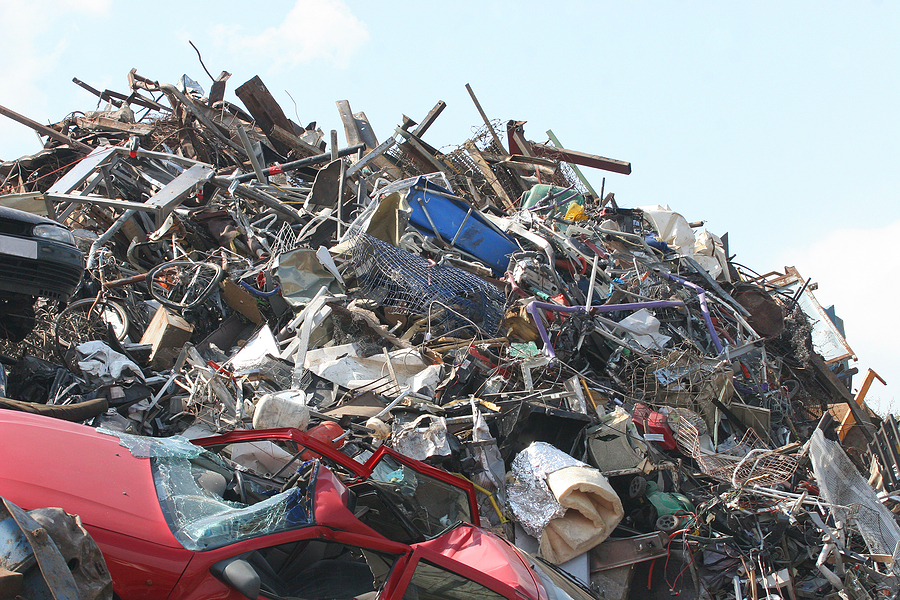In our quest for a more sustainable future, finding ways to reuse waste is essential, as every small action contributes to a larger impact. Scrap metal, often taken for granted or discarded, is actually a highly valuable resource that can be recycled to create significant environmental benefits. Recycling scrap metal not only reduces the energy used in manufacturing new materials but also helps preserve finite natural resources and protect natural habitats that might otherwise be disrupted by mining and extraction processes.
The positive effects of scrap metal recycling extend beyond the environment—it contributes to a more circular economy by turning waste into reusable materials. This blog delves into how recycling metal waste supports environmental sustainability and explains how both small businesses and individuals can take part in this meaningful practice. Whether it’s recycling old tools, appliances, or industrial scraps, every effort helps move us closer to a greener and more responsible future.

Why Recycling Scrap Metal Matters for the Environment
The environmental advantages of scrap metal recycling extend beyond energy savings. By reprocessing existing metals, we can create a positive ripple effect that benefits the air we breathe, the land we live on, and the resources we depend on.
Reduces Greenhouse Gas Emissions
Recycling scrap metal significantly reduces greenhouse gas emissions, which are major contributors to global warming. By reprocessing metal waste, we can cut down on these emissions, creating a cleaner atmosphere and reducing our impact on climate change.
Conserves Natural Resources
Scrap metal recycling also plays a vital role in conserving natural resources. Mining for raw materials involves destroying habitats and landscapes, which can lead to biodiversity loss and ecosystem damage. By recycling existing metals, we minimize the need for further mining, allowing our natural resources to be preserved and thrive for future generations.
Improves Waste Management
Additionally, recycling helps manage waste more efficiently. When metals are recycled, they’re diverted from landfills, reducing the pressure on these overflowing sites and the associated environmental hazards. Landfills are notorious for releasing harmful toxins into the air and groundwater, making waste management a crucial environmental concern.
How to Get Involved in Scrap Metal Recycling
Making a positive environmental impact through scrap metal recycling is accessible to everyone, from small businesses to individual community members.
Involving Small Businesses and the Community
Small businesses can be champions of sustainability by incorporating scrap metal recycling into their practices. Encouraging employees to participate in recycling initiatives, such as setting up collection bins for scrap metal, can foster a culture of environmental responsibility. Partnering with local recycling centers can also provide businesses with cost-effective waste management solutions while supporting the community.
Tips for Individuals and Communities
For individuals, starting a scrap metal recycling habit at home or within the community is easier than you might think.
- Educate and Organize: Begin by educating yourself and neighbors about the types of metals that can be recycled. Establish a collection point for scrap metals to make it convenient for everyone involved.
- Community Events: Hosting community clean-up days to collect metal waste not only benefits the environment but also strengthens community bonds.
- Local Programs: Consider joining local recycling programs or initiatives. Many cities and towns offer resources and support for residents interested in recycling efforts. These programs can provide valuable information and tools to help you get started and stay committed to the cause.
Request a Free Offer For Your Scrap Car! ✨
FAQS about Scrap Metal Recycling
What is scrap metal recycling?
Scrap metal recycling involves collecting, sorting, processing, and reusing different types of metal waste. This process helps to reduce the need for mining raw materials and reduces pollution by diverting metal waste from landfills.
Why should I recycle scrap metal?
Recycling scrap metal benefits the environment by conserving natural resources, reducing air and water pollution caused by mining and manufacturing, and decreasing the amount of waste sent to landfills. It also has economic benefits such as creating jobs in the recycling industry and reducing production costs for businesses that use recycled metals.
What types of metals can be recycled?
Almost all types of metal can be recycled, including steel, aluminum, copper, brass, zinc, and precious metals like gold and silver. This includes both ferrous (containing iron) and non-ferrous metals. Metals from a variety of sources such as electronics, appliances, automobiles, construction materials, and food packaging can be recycled.
How is scrap metal recycled?
The recycling process involves collecting the scrap metal and sorting it by type. It then goes through a series of steps that may include shredding or cutting to reduce its size for easier handling and melting in high-temperature furnaces to separate impurities. Once purified, the molten metal is formed into bars or ingots and cooled before being sold to manufacturers for use in new products. This process not only reduces the need for mining and extraction of raw materials but also saves energy and reduces greenhouse gas emissions.
Conclusion
Scrap metal recycling is a powerful tool in our efforts to protect the environment. It reduces pollution, conserves natural resources, and lessens the burden on our landfills. By embracing recycling practices, small businesses and individuals alike can contribute to a healthier, more sustainable world. Every can, pipe, and piece of metal recycled is a step toward a brighter, greener future for all.
Got a scrap car that’s no longer safe to drive? Not worth the insurance claim? Let us take it off your hands and reward you kindly. Reach out to Zore’s Junk Cars and sell your scrap vehicle for instant cash.
Related Post: Comprehensive Guide to Scrap Metal Prices: From Aluminum to Zinc
